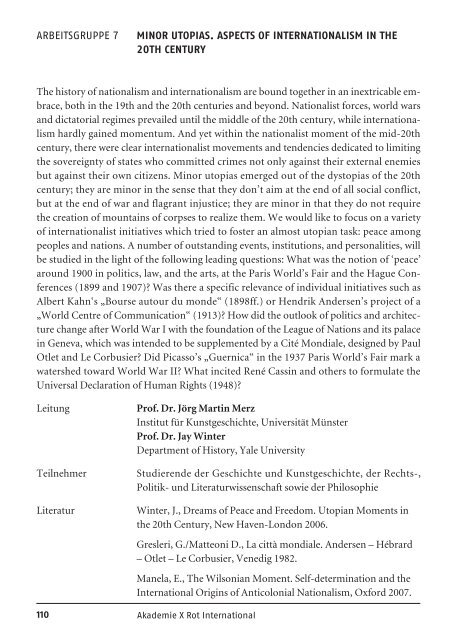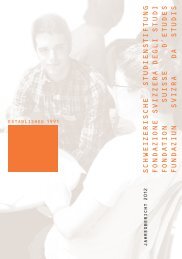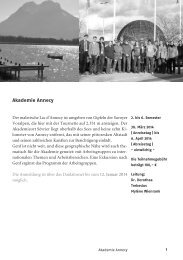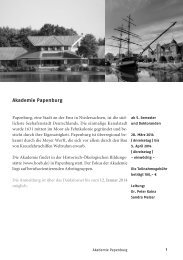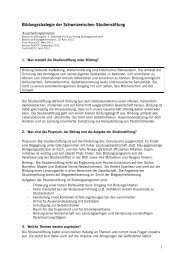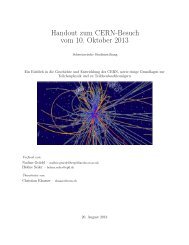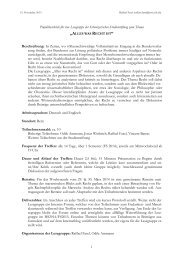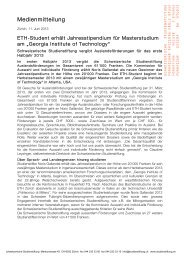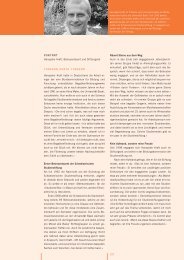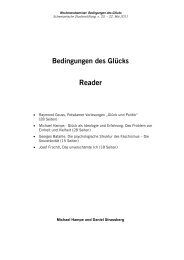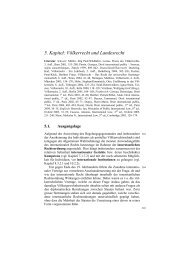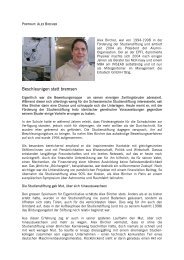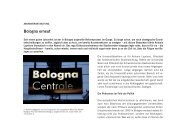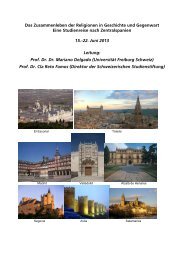Sommerakademien der deutschen Stiftung - Studienstiftung.ch
Sommerakademien der deutschen Stiftung - Studienstiftung.ch
Sommerakademien der deutschen Stiftung - Studienstiftung.ch
Erfolgreiche ePaper selbst erstellen
Machen Sie aus Ihren PDF Publikationen ein blätterbares Flipbook mit unserer einzigartigen Google optimierten e-Paper Software.
Arbeitsgruppe 7<br />
Minor Utopias. Aspects of Internationalism in the<br />
20th Century<br />
The history of nationalism and internationalism are bound together in an inextricable embrace,<br />
both in the 19th and the 20th centuries and beyond. Nationalist forces, world wars<br />
and dictatorial regimes prevailed until the middle of the 20th century, while internationalism<br />
hardly gained momentum. And yet within the nationalist moment of the mid-20th<br />
century, there were clear internationalist movements and tendencies dedicated to limiting<br />
the sovereignty of states who committed crimes not only against their external enemies<br />
but against their own citizens. Minor utopias emerged out of the dystopias of the 20th<br />
century; they are minor in the sense that they don’t aim at the end of all social conflict,<br />
but at the end of war and flagrant injustice; they are minor in that they do not require<br />
the creation of mountains of corpses to realize them. We would like to focus on a variety<br />
of internationalist initiatives whi<strong>ch</strong> tried to foster an almost utopian task: peace among<br />
peoples and nations. A number of outstanding events, institutions, and personalities, will<br />
be studied in the light of the following leading questions: What was the notion of ‘peace’<br />
around 1900 in politics, law, and the arts, at the Paris World’s Fair and the Hague Conferences<br />
(1899 and 1907)? Was there a specific relevance of individual initiatives su<strong>ch</strong> as<br />
Albert Kahn‘s „Bourse autour du monde“ (1898ff.) or Hendrik An<strong>der</strong>sen’s project of a<br />
„World Centre of Communication“ (1913)? How did the outlook of politics and ar<strong>ch</strong>itecture<br />
<strong>ch</strong>ange after World War I with the foundation of the League of Nations and its palace<br />
in Geneva, whi<strong>ch</strong> was intended to be supplemented by a Cité Mondiale, designed by Paul<br />
Otlet and Le Corbusier? Did Picasso’s „Guernica“ in the 1937 Paris World’s Fair mark a<br />
watershed toward World War II? What incited René Cassin and others to formulate the<br />
Universal Declaration of Human Rights (1948)?<br />
Leitung<br />
Teilnehmer<br />
Literatur<br />
110<br />
Prof. Dr. Jörg Martin Merz<br />
Institut für Kunstges<strong>ch</strong>i<strong>ch</strong>te, Universität Münster<br />
Prof. Dr. Jay Winter<br />
Department of History, Yale University<br />
Studierende <strong>der</strong> Ges<strong>ch</strong>i<strong>ch</strong>te und Kunstges<strong>ch</strong>i<strong>ch</strong>te, <strong>der</strong> Re<strong>ch</strong>ts-,<br />
Politik- und Literaturwissens<strong>ch</strong>aft sowie <strong>der</strong> Philosophie<br />
Winter, J., Dreams of Peace and Freedom. Utopian Moments in<br />
the 20th Century, New Haven-London 2006.<br />
Gresleri, G./Matteoni D., La città mondiale. An<strong>der</strong>sen – Hébrard<br />
– Otlet – Le Corbusier, Venedig 1982.<br />
Manela, E., The Wilsonian Moment. Self-determination and the<br />
International Origins of Anticolonial Nationalism, Oxford 2007.<br />
Akademie X Rot International


